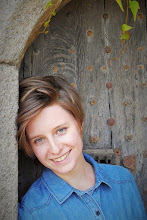Week One of NaNo is over, and the Week Two blues have
officially commenced. I’ve made really good progress so far (hoping to hit 25k
tonight), but I’ve written many of the initial scenes I was really excited
about and I’m now well into the meat of the novel. I’m also properly mired in
several of the logistical problems I’d been studiously ignoring. Now, it seems,
I’ve actually got to do the work of sorting out my plot rather than just
playing around with fun scenes. Sigh.
So, when the initial excitement has worn off and the hard
work hits, how do we keep going? What are the best ways to beat the Week Two
Blues?
1-
Don’t Stress
Firstly, don’t stress if you’re struggling a bit, or your
novel doesn’t seem as exciting anymore. This is completely normal! Every writer
goes through phases of self-doubt, and the early-middle is one of the hardest
parts of a novel. The shine of a new story has worn off, but the end is still
nowhere in sight. You now have to confront all the logistical problems you
could ignore at the outline stage. This stage of writing is just hard, so don’t
feel inferior because you’re struggling.
2-
Take a Walk
If the creative juices aren’t flowing, sometimes the best
thing is to get away for a little while. Crucially, you should do something
that allows your brain to wander and be creative. Avoid scrolling through social
media or watching TV, as these activities take up too much of our attention.
Instead, do something to make space for your thoughts, like going for a walk,
taking a shower, or doing something artistic. Allowing your mind to wander is
crucial for creativity. Pro tip: keep a notepad handy to capture all those
brilliant thoughts when they show up!
3-
Spend Time Plotting
If something genuinely isn’t working in your story, it’s
worth taking the time to sort it out. Just like tugging harder at a tangled skein
of wool only makes it worse, pressing forward with a story that’s broken can
just make a mess. Instead, take an hour out to brainstorm solutions. Try using
a mindmap, or freewriting (you can even count these words toward your NaNo
total, if you want!) You don’t need to do this every time you hit a minor snag,
but taking an hour to solve a major problem can make the words flow much
faster.
4-
Jump Ahead
If you’re stuck on a section of your story, feel free to
jump ahead! There’s no reason why writing has to be linear. Whether you’re wrestling
with a stubborn plot hole or just feeling uninspired by a chapter, it’s okay to
leave it behind and move on to a more exciting section. Sometimes, moving
forward can give you just the energy you need to revitalise your story.
5-
Silence Your Inner Critic
Someday, when you’re sending your novel to beta readers, or
agents, or publishers, it might matter if your novel is good. Someday, you
might need to turn your most critical eye upon your work. But today, in the
middle of NaNo Week Two, is not that day. Today, you write. With NaNo, the only
thing that matters is your wordcount. Try “sprints,” where you write as much as
you can in a short space of time, perhaps 5 or 20 min. Or, if you’re really
stuck, try writing one chapter as badly as you possibly can. It may
surprise you just how good your “bad” writing is!
6-
Keep Going
Finally, the most crucial thing of all: keep going! Writing
a novel is a marathon, not a sprint. The most important thing is to keep showing
up. Even if you’re behind, even if you can only manage 167 words, not 1667,
just keep going. It doesn’t matter how small the steps are, as long as you’re
moving forward.











